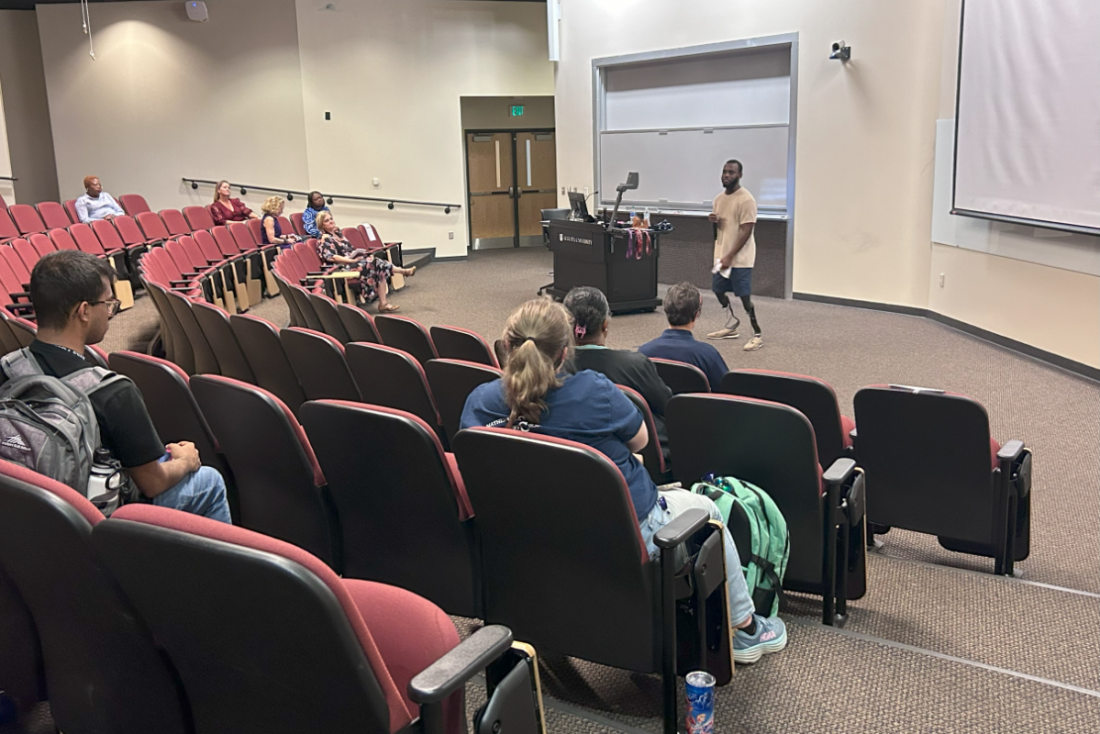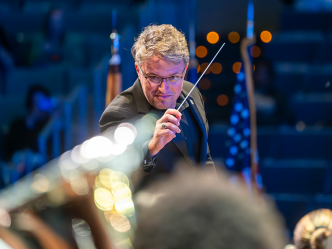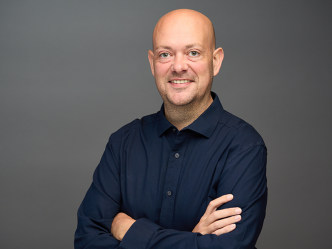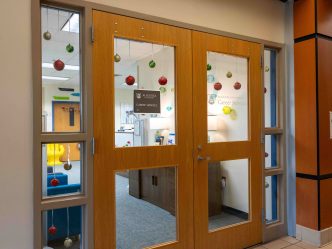On Oct. 23, Augusta University welcomed eight-time Paralympic medalist Patrick “Blake” Leeper to share his journey of overcoming physical challenges to achieve his dreams and finding abilities in your disabilities.
Leeper was born with fibular hemimelia, a congenital birth defect that led to the development of his legs only to knee length. He has worn prosthetics since he was 9 months old. Since then, he has set records both on and off the track by breaking down barriers and perceptions surrounding disabilities. His story of resilience, hard work and determination ultimately led him to win eight Paralympic Track and Field international medals, a world record and three American records.
Drawing from his own experiences, Leeper asked audience members to examine how they respond to challenges, recalling times when he pivoted his mindset to “why not me” instead of “why me.”
“I’m thankful for the fact that I was born without legs,” Leeper said. “This has made me stronger. Yes, I have had hard days, and I’ve had some great days as well. This right here, this is my strength. My adversity is my advantage.”
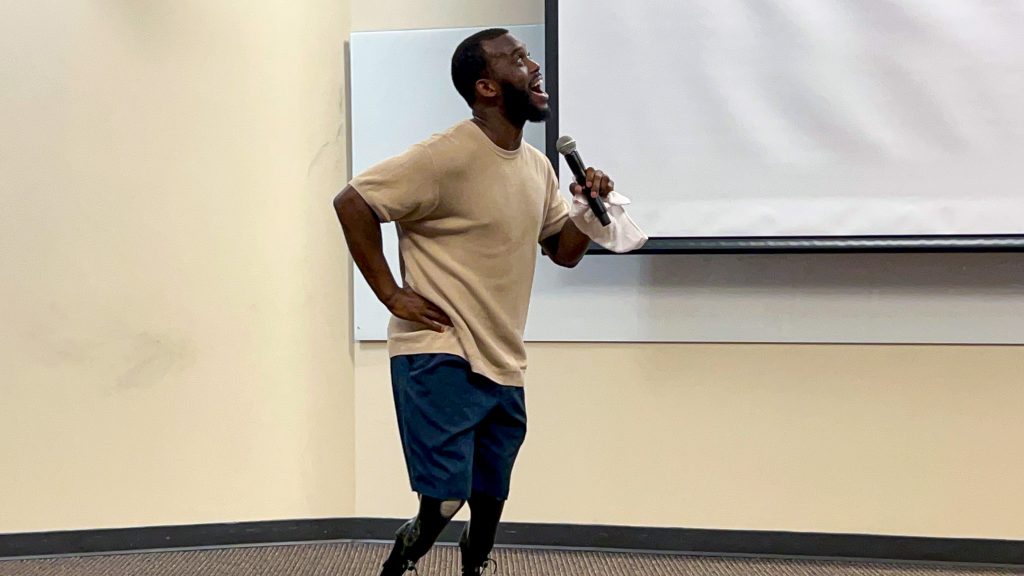
Rebecca Berger, director of Testing and Disability Services, emphasized the importance of addressing stigmas around disabilities. Stigmas reinforce outdated beliefs, and, by breaking them down, it can create a culture of inclusivity and equity, said Berger.
“Blake Leeper’s story illustrates that with determination and the right support systems in place, individuals can break through these barriers,” said Berger. “His message inspired our university’s community to work together to improve accessibility, increase awareness of the needs of students with disabilities and foster a more inclusive culture that encourages everyone to thrive.”
While strides have been made in accessibility throughout higher education — such as Testing and Disability Services’ new expanded database and assistive technologies — there is still much to be done. Nationally, 19% of undergraduates and 12% of graduate students identify as having a disability, while only 4.5% do at AU. Berger attributes this lower percentage to students’ reluctance to self-identify.
“We need to normalize the idea of creating inclusive and accessible environments,” Berger said. “We must be willing to break down barriers so more students with disabilities feel supported, and so they have the same opportunities for success as every student at Augusta University.”
Faculty, staff and students can become better allies by prioritizing the voices of those with disabilities and advocating for their rights in all spaces. One such way that someone could learn about the unique challenges a person with disability faces was by attending the speaker event.
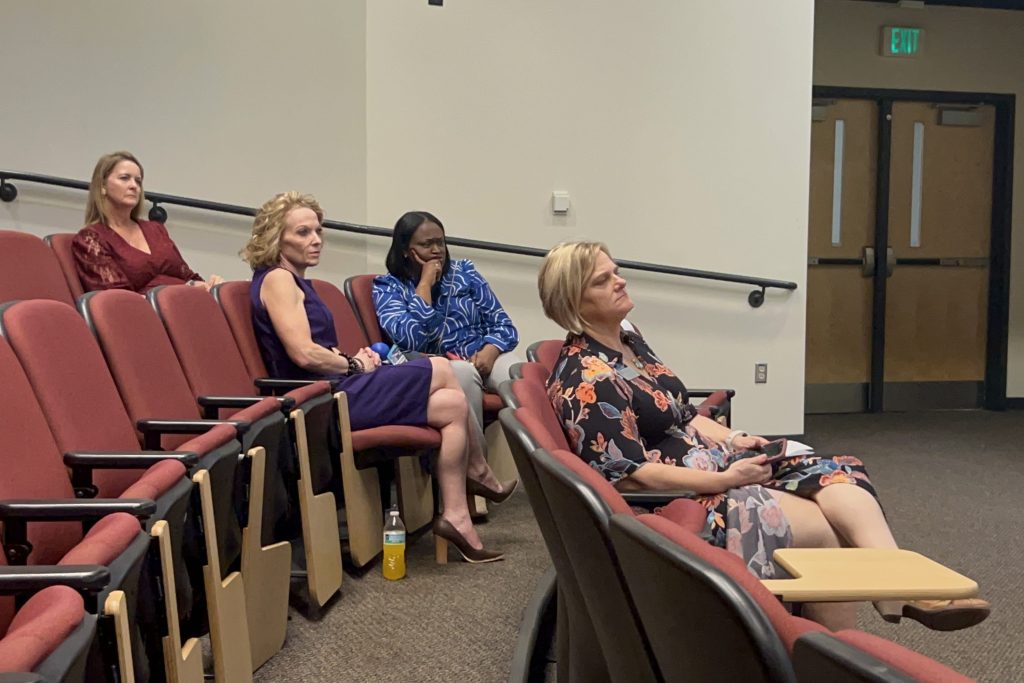
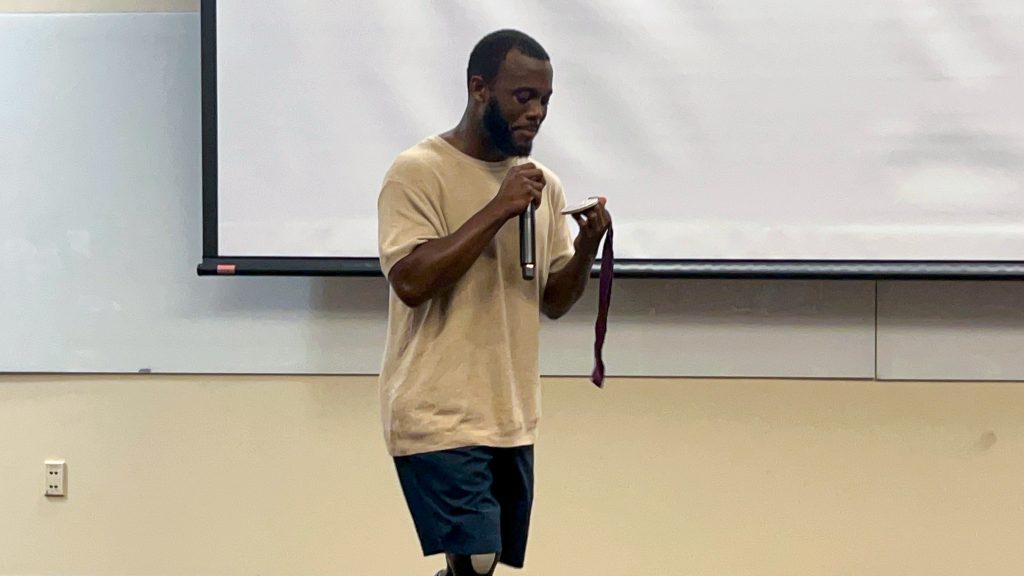
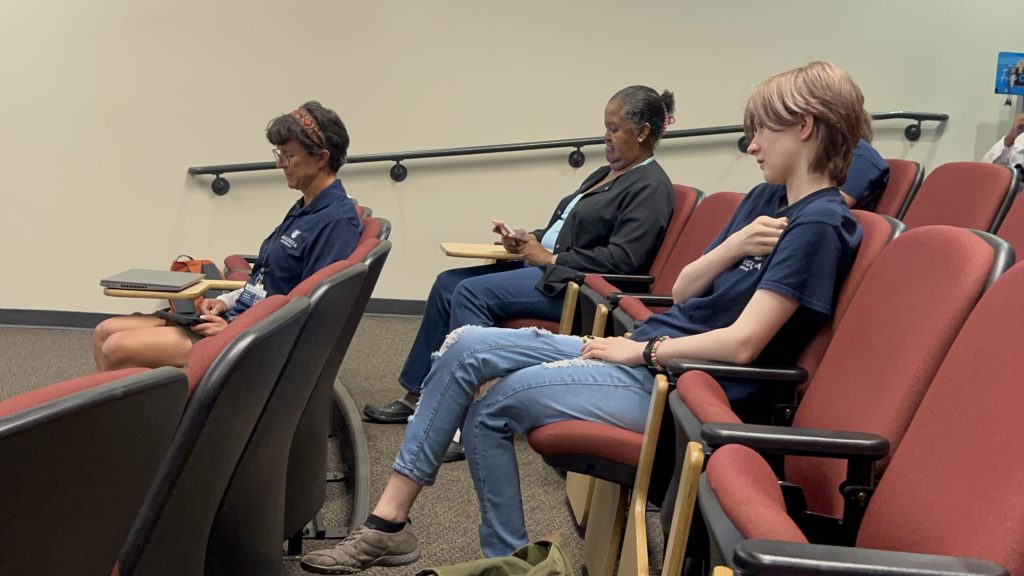
Jacque Copeland, a third-year undergraduate majoring in psychology with a minor in kinesiology, found the event to be a great opportunity to listen in and learn more about disabilities. Copeland was inspired by Leeper’s motivational words, particularly when he said that life is 10% what you’re dealt and 90% what you do with it.
“As a college student, I know there are a lot of personal and academic challenges we may come across,” said Copeland. “It was inspiring to hear Blake Leeper’s story of becoming a Paralympian. It encourages people to keep going, to continue setting goals and to continue striving to achieve those goals. No matter how big the goals may seem, it is worth reminding ourselves we deserve every part of the journey.”
Katelyn Wilhite, a graduate student pursuing a Master of Science in Biological and Computational Mathematics, also attended the event and found it to be truly inspirational.
“I thought it would be interesting to hear what Blake Leeper has gone through in his journey and what he’s done to get where he’s at now,” said Wilhite. “One thing that stood out to me during the event was that no matter what disability you have, you have 1,000 other different abilities.”
 Augusta University
Augusta University
